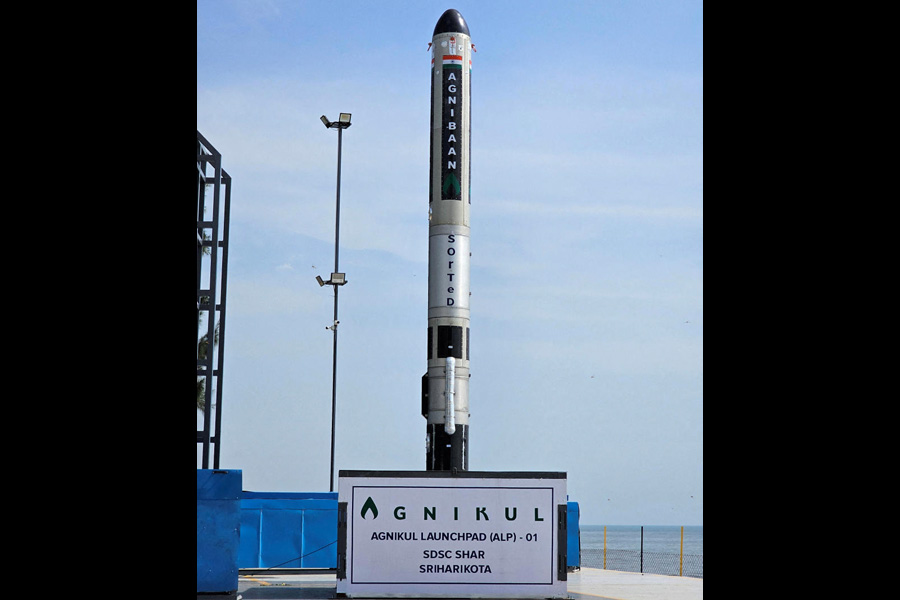India's Agnikul Cosmos called off a test flight of its first rocket on Tuesday seconds before it was due to launch - the fourth such cancellation in the last three months.
Launches of India's second privately built rocket, and first using a combination of gas and liquid fuel, had been aborted three times before because of technical issues, including one flight that was cancelled about 90 seconds before lift-off.
The launch, scheduled for 5:45 a.m. IST (0015 GMT) on Tuesday, was first delayed less than six minutes before lift-off "due to a technical glitch in the countdown activities", and officials set a new lift-off time of 9:25 a.m.
Only five seconds before lift-off, however, the launch was put on "temporary hold to check igniter performance", then was called off altogether.
The mission was expected to last two minutes and test the new "semi-cryogenic" engine and 3D-printed parts. If successful, it would have represented a technological step for India, whose Indian Space Research Organisation (ISRO) has not yet successfully flown a semi-cryogenic engine, which uses a mix of liquid and gas for propellant.
Agnikul Cosmos' Agnibaan rocket is a customisable, 2-stage launch vehicle that can take up to 300 kg (about 660 lb) of payload to orbits about 700 km in altitude (435 miles), the company said. SpaceX's Falcon Heavy can put up to 63,500 kgs to low Earth orbit.
India's first privately developed rocket, from the company Skyroot, was flown from ISRO's launch site in 2022.
Founded in 2017, Agnikul - whose name is derived from the Hindi and Sanskrit word for fire - runs the country's first private launchpad and mission control centre, while ISRO operates all other launchpads.










